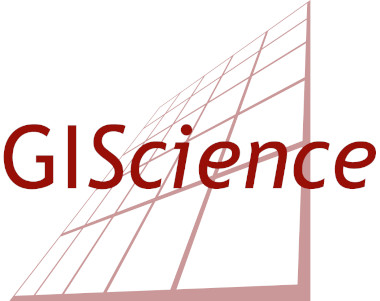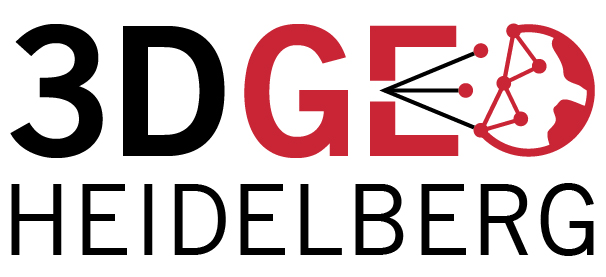Tag: HealthGIS
-
Mapping physical access to health care for older adults in sub-Saharan Africa and implications for the COVID-19 response: a cross-sectional analysis
New paper published on healthcare access in Sub-Saharan Africa It is almost a year since SARS-CoV-2 first emerged in China. The virus spread all over the world. Countries south of the Sahara did not receive much attention. Although outbreaks here have a strong risk potential due to existing crises. In our new published paper we…
-
Exploring OSM for healthcare access analysis in Sub-Saharan Africa
[tl;dr] Using hospital locations and the ORS Isochrone service, we have created a method for comparing physical access to healthcare in Sub-Saharan Africa. Hospital locations were derived from OpenStreetMap and compared against another free available dataset. Results indicate strong similarity in both hospital datasets, however the uncertainty of our method requires further evaluation. Figure 1…
-
Colloquium Talk about healthsites.io: Building a baseline of health facility data in OpenStreetMap by M. Herringer
We are happy to invited to the presentation in the GIScience HD colloquium. Everybody interested is invited to join the presentations and the discussion afterwards. Building a baseline of health facility data in OpenStreetMap Markus Herringer, healthsites.io, Amsterdam, NL – Monday, February 10, 2020. 2.15 pm -Lecture Hall (room 015), Im Neuenheimer Feld 348, Institute…
-
Healthsites and HeiGIT establish partnership
The Global Healthsites Mapping Project (Healthsites) and the Heidelberg Institute for Geoinformation Technology/ GIScience Research Group are happy to announce the now also formal cooperation. Last week, HeiGIT/ GISciences signed the Healthsites Memorandum of Understanding (MoU) to strengthen their strategic partnership with the main aim to support the analyses, sharing and use of baseline OpenStreetMap…
-
Green spaces in cities promote well-being and mental health — ‘Nature’ Neuroscience study published with participation of GIScience researchers at Heidelberg University
INTERDISCIPLINARY NATURE STUDY SHOWS THAT INNER TOWN GREEN DIRECTLY INFLUENCES ON CITY RESIDENTS Inner city green areas such as lawns, flowerbeds, trees or parks can directly improve the well-being of city dwellers. These are the findings of a recent study conducted by scientists from GIScience Research Group at Heidelberg University and the Heidelberg Institute for…
-
Location-based sampling strategies for GPS-triggered electronic diaries
Self-reporting is a well-established approach within the medical and psychological sciences. In order to avoid recall bias, i.e. past events being remembered inaccurately, the reports can be filled out on a smartphone in real-time and in the natural environment. This is often referred to as ambulatory assessment and the reports are usually triggered at regular…
-
Results on PsychoGeography published
Recently some more publications have been accepted or have been published online that present some further results from our joint project on Psychogeography together with our partners from ZI Mannheim and KIT: In particular the following overview paper about the project is now available as free pdf online: Reichert, M., Törnros, T., Hoell, A., Dorn,…
-
Mapping of environmental risk factors in everyday life
Psychiatric research is increasingly interested in the influence of social and environmental contexts on human health. According to recent findings, specific impacts of urban upbringing on neural social stress processing relate to the heightened prevalence of mental disorders in cities. Although this is a major societal problem, it remains unknown which environmental components (e.g., psychosocial…
-
Do Cities makes us (mentally) ill?
this is a bit of a provoking question – but if you want – this is a very shortened version of one of the research questions in a new project on Psychogeography together with the Central Institute for Mental Health (ZI) in Mannheim and other parters. It looks into the relationship between stress, mental health…
-
New Position in Health-GIS on Psychioepidemiology
We offer a new position in the area of Health GIS. More Info here. Deadline: 08.Sept. 2013. Also check our other job offers. In this context we also offer topics for Master or Bachelor thesis.
-
Do cities make us ill? – new project on PsychoGeoinformatics
To what extend do urban environments put stress on mental health? And how can geographic information and analysis support in discovering the underlying relationships ? These are the core research questions of the new collaboration project “PsychoGeoinformatics”. The project has been accepted as a twinning project of the Center for Scientific Computing (IWR) at Heidelberg…
-
Kick-Off Meeting in Project on Psychoepidemiology (HealthGIS, Psychogeography)
On June 11 the Kick-Off Meeting for a new joint project on Psychoepidemiology took place at the Central Institute for Mental Health (ZI) in Mannheim. The goal of the joint project with researchers from the ZI, KIT, Dresden and the GIScience Research Group Heidelberg is to investigate relationships between social and environmental factors on the…


